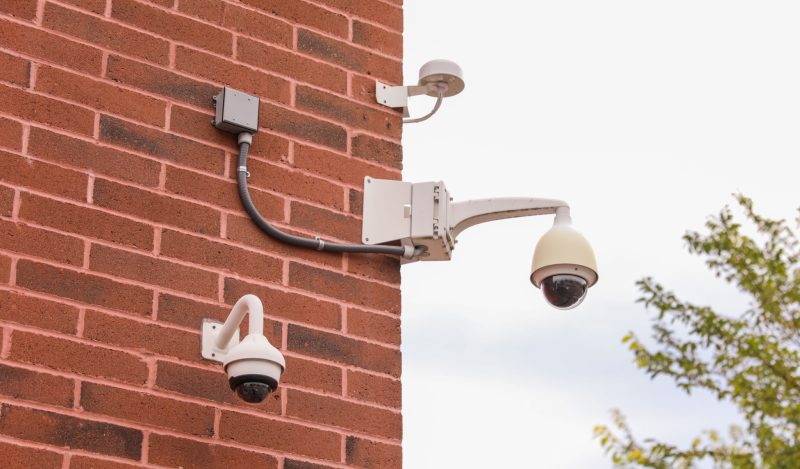It is no secret, especially since 2020, that we live in a society where surveillance of various kinds and at different levels – optical, audial, text-oriented, administrative – has increased almost unbearably. As long ago as 2011 Sherry Turkle sounded the alarm on the growing acceptance of surveillance (by the US government, among other agencies) and the concomitant loss of privacy by most people. In Alone Together (2011: p. 262) she raised this issue by observing:
Privacy has a politics. For many, the idea ‘we’re all being observed all the time anyway, so who needs privacy?’ has become a commonplace. But this state of mind has a cost. At a Webby Awards ceremony, an event to recognize the best and most influential websites, I was reminded of just how costly it is.
She proceeded to describe how, when the issue of ‘illegal wiretapping’ by government cropped up, the general response by the ‘Weberati’ was that, if one had ‘nothing to hide, you have nothing to fear,’ in this way revealing their apathy about the incremental loss of privacy. On this occasion, a ‘Web luminary’ confided to her that someone might always be observing your activity on the internet, but that it really did not matter if this were the case: ‘As long as you are not doing anything wrong, you are safe.’
To Turkle’s surprise, this web-authority justified his lack of concern by (incongruously) referring to French thinker Michel Foucault’s discussion of the architectural idea of a ‘panopticon’ (p. 262):
Foucault’s critical take on disciplinary society had, in the hands of this technology guru, become a justification for the U.S. government to use the Internet to spy on its citizens. For Foucault, the task of the modern state is to reduce its need for actual surveillance by creating a citizenry that will watch itself. A disciplined citizen minds the rules. Foucault wrote about Jeremy Bentham’s design for a panopticon because it captured how such a citizenry is shaped. In the panopticon, a wheellike structure with an observer at its hub, one develops the sense of always being watched, whether or not the observer is actually present. If the structure is a prison, inmates know that a guard can potentially always see them. In the end, the architecture encourages self-surveillance.
Foucault’s use of Bentham’s idea of the panopticon in his monumental study of modes of punishment in modern society – Discipline and Punish (1995) – cannot be discussed at length here (it will have to wait for a future occasion). In this regard Turkle provides a very succinct summary that will have to do for the moment, and adds a corollary about the web-illuminatus’s allusion to it (p. 262):
The panopticon serves as a metaphor for how, in the modern state, every citizen becomes his or her own policeman. Force becomes unnecessary because the state creates its own obedient citizenry. Always available for scrutiny, all turn their eyes on themselves….Foucault’s critical take on disciplinary society had, in the hands of this technology guru, become a justification for the U.S. government to use the Internet to spy on its citizens.
Unsurprisingly, people around her and her interlocutor at the cocktail party indicated their agreement with this sentiment, which Turkle – someone who clearly understands the meaning of democracy – evidently could not stomach, judging by her further elaboration on what she perceived as something ‘very common in the technology community,’ and as gaining growing approval even among young people at high school and college.
Turkle (p. 263) granted that voluntarily giving up one’s privacy concerning everything from one’s preferences in music to sex on social media such as Facebook is symptomatic of being unphased by the thought that impersonal government agencies are spying on you to ascertain what websites you visit or whom you associate with. It is well-known that some welcome such public revelations because it seems to be a justification of them as individuals: they are ‘seen’ as having significance. Small wonder that discussions with teenagers about online privacy meet with resignation instead of outrage.
In contrast, Turkle’s own comparable experience of attacks on privacy, dating back to the McCarthy era in the 1950s, was informed by her grandparents’ fear that the McCarthy hearings were about anything but patriotism; they saw it in the light of what they had experienced in Eastern Europe, with the government spying on citizens and sometimes persecuting them. She recounted how her grandmother valorised living in America, pointing out to her granddaughter that no one living in their apartment block was afraid of having their names on their post boxes for everyone else to see, and reminding her that it was a federal offence for anyone to look at one’s mail: ‘That’s the beauty of this country’ (p. 263).
Turkle regarded this as her ‘civics lessons at the mailbox,’ which ‘linked privacy and civil liberties,’ and compared this to contemporary children who grow up with the thought that their email and other messages may be shared with others and are not (unlike mail in a bygone era) protected by law. Why, even the internet guru referred to earlier saw no irony in citing Foucault on panopticism in relation to the internet having perfected it, arguing that all one could do was ‘to just be good.’ To her credit, however, Turkle would have none of it (p. 263-264):
But sometimes a citizenry should not simply ‘be good.’ You have to leave space for dissent, real dissent. There needs to be technical space (a sacrosanct mailbox) and mental space. The two are intertwined. We make our technologies, and they, in turn, make and shape us. My grandmother made me an American citizen, a civil libertarian, a defender of individual rights in an apartment lobby in Brooklyn…
In democracy, perhaps we all need to begin with the assumption that everyone has something to hide, a zone of private action and reflection, one that must be protected no matter what our techno-enthusiasms. I am haunted by the sixteen-year-old boy who told me that when he needs to make a private call, he uses a pay phone that takes coins and complains how hard it is to find one in Boston…
I learned to be a citizen at the Brooklyn mailboxes. To me, opening up a conversation about technology, privacy, and civil society is not romantically nostalgic, not Luddite in the least. It seems like part of democracy defining its sacred spaces.
This book by Turkle was first published in 2011, when things were already pretty bad as far as honouring the democratic right to privacy was concerned. Contrary to her initial optimism regarding human use of computers and the internet, Turkle – who has for some time been a leading thinker on the relation of information technology to human experience of it – has more recently expressed serious concern about the negative effects, via the use of smartphones, of social media on (particularly young people’s) linguistic and emotional-affective development and capacities; see her Reclaiming Conversation (2015).
How have things changed since then, particularly during the Covid era? Judging by Sara Morrison’s experience it has changed for the worst:
As a digital privacy reporter, I try to avoid sites and services that invade my privacy, collect my data, and track my actions. Then the pandemic came, and I threw most of that out the window. You probably did, too…
Millions of Americans have had a similar pandemic experience. School went remote, work was done from home, happy hours went virtual. In just a few short months, people shifted their entire lives online, accelerating a trend that would have otherwise taken years and will endure after the pandemic ends — all while exposing more and more personal information to the barely regulated internet ecosystem. At the same time, attempts to enact federal legislation to protect digital privacy were derailed, first by the pandemic and then by increasing politicization over how the internet should be regulated.
Keep in mind that, so far, only the issue of (the right to) privacy as a democratic principle has been considered. If one goes a step further, in the direction of inquiring about “Americans’ perceptions of privacy and surveillance in the COVID-19 pandemic” (December 2020), a more nuanced picture emerges. In this survey-based analysis of responses from 2,000 American adults, the authors set out to assess respondents’ support for nine surveillance measures used during the Covid period. Their assessment of attitudes brought out partisan differences on a number of surveillance procedures, but enabled them to come to the following conclusion:
Support for public health surveillance policies to curb the spread of COVID-19 is relatively low in the U.S. Contact tracing apps that use decentralized data storage, compared with those that use centralized data storage, are more accepted by the public. While respondents’ support for expanding traditional contact tracing is greater than their support for the government encouraging the public to download and use contact tracing apps, there are smaller partisan differences in support for the latter policy.
Regardless of how US citizens (and citizens of other countries) may evaluate surveillance policies and measures such as those covered in the study referred to above, three years down the line, we face surveillance measures that are considerably more far-reaching than something like contact-tracing, for example.
What should one think about the proposed European Digital Wallet – which is certain to be copied in the US and other countries – that will enable authorities to track virtually everything one does, in the name of the ‘convenience’ of having everything together in one digital ‘burrito,’ as Clayton Morris calls it in the video linked above. It will include one’s biometric data, one’s central bank digital currency, one’s vaccine status and other ‘health’ data, as well as data on your whereabouts and movement records…what is left for privacy? Nothing. This would be panopticism on steroids.
As Morris further points out, despite some opposition to this conspicuously totalitarian move within the European Parliament, when it is brought to a vote it will probably be accepted, with disastrous consequences for European Union citizens. He also remarks, appositely, that people usually do not do what is required beforehand – such as contacting one’s representative in parliament to protest the proposed measure – in an attempt to prevent such draconian measures from being adopted; as a rule they wait for it to be pushed through, and when the pain becomes too unbearable they will start protesting. But then it would be too late.
Join the conversation:


Published under a Creative Commons Attribution 4.0 International License
For reprints, please set the canonical link back to the original Brownstone Institute Article and Author.









